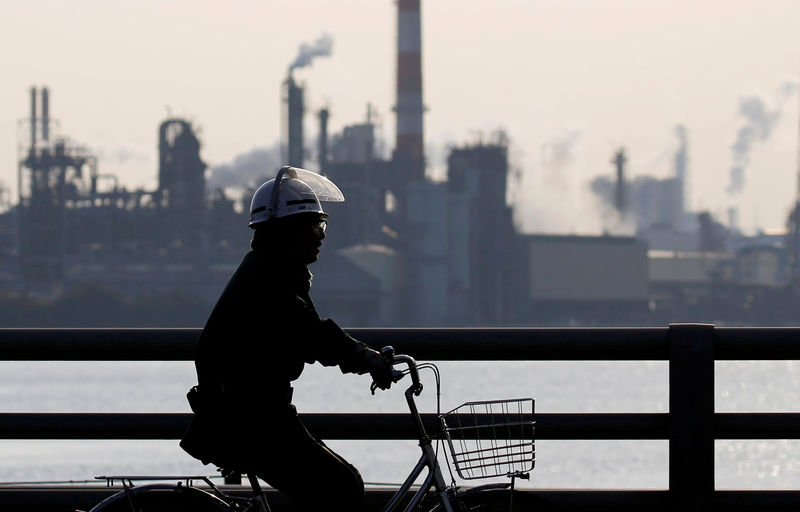By Tetsushi Kajimoto
TOKYO (Reuters) - Japan's industrial output rebounded in September to log its fastest gain in four months, offering some relief to manufacturers amid a slowdown in global demand and rising pressure on the country's exports from the U.S.-China trade war.
Heightening downside risks for Japan's economy, including the effects of a hike in sales tax on consumption, will keep the central bank under pressure to ease again to sustain growth and meet its 2% inflation target.
The Bank of Japan is likely to stand pat at its two-day rate review that ends on Thursday as stable markets, a truce in U.S.-China trade talks and robust domestic demand give it room to save its limited ammunition.
Factory output rose 1.4% in September from the previous month, trade ministry data showed on Thursday, handily beating median market forecast for 0.4% growth and swinging from a 1.2% decline the previous month.
On the quarter, factory output fell 0.6% in July-September, swinging from a 0.6% gain in the previous three-month period.
Manufacturers surveyed by the Ministry of Economy, Trade and Industry expect output to rise 0.6% in October and decline 1.2% in November, the data showed.
"Looking ahead, the outlook is poor," said Marcel Thieliant, senior Japan economist at Capital Economics.
"With consumer spending set to slump after the tax hike, domestic demand won't come to the rescue. The upshot is that we expect the economy to stagnate in the first half of next year."
On Wednesday, data showed a big jump in retail sales in September ahead of this month's tax hike, as consumers went on a spending spree on big-ticket items such as cars and household durables to beat the Oct. 1 tax hike.
Analysts, however, say weak manufacturers' confidence, a prolonged Sino-U.S. trade war, China's slowdown and tame consumption after the tax hike will keep a lid on factory activity and the broader economy.
Japan has implemented a twice-delayed sales tax hike to 10% from 8% this month, in a move seen as crucial for fixing the industrial world's heaviest public debt at more than twice the size of its economy.
But it could tip the economy into recession, some analysts say.

The BOJ will likely keep its minus 0.1% interest rates and maintain the 10-year Japanese government bond yield target at around 0% at this week's review, a Reuters poll of economists have forecast.